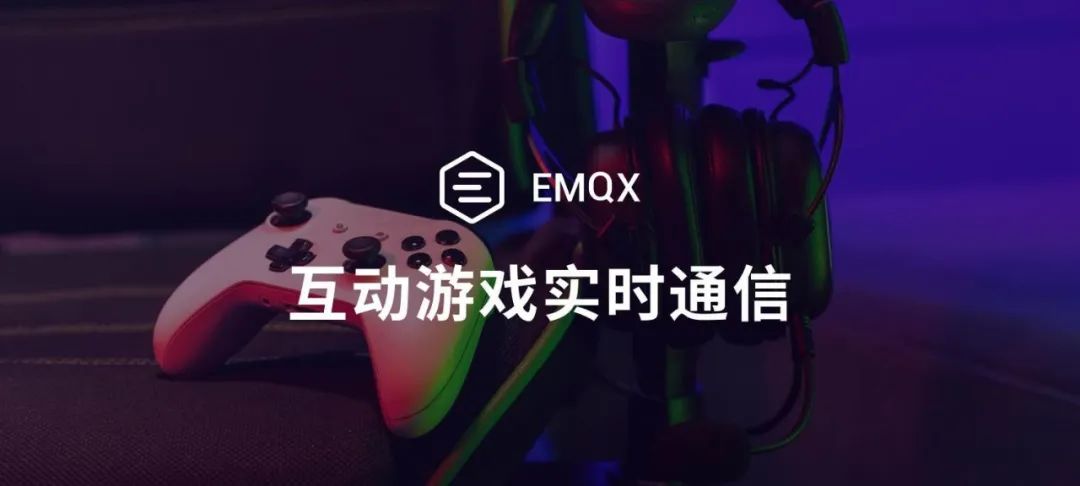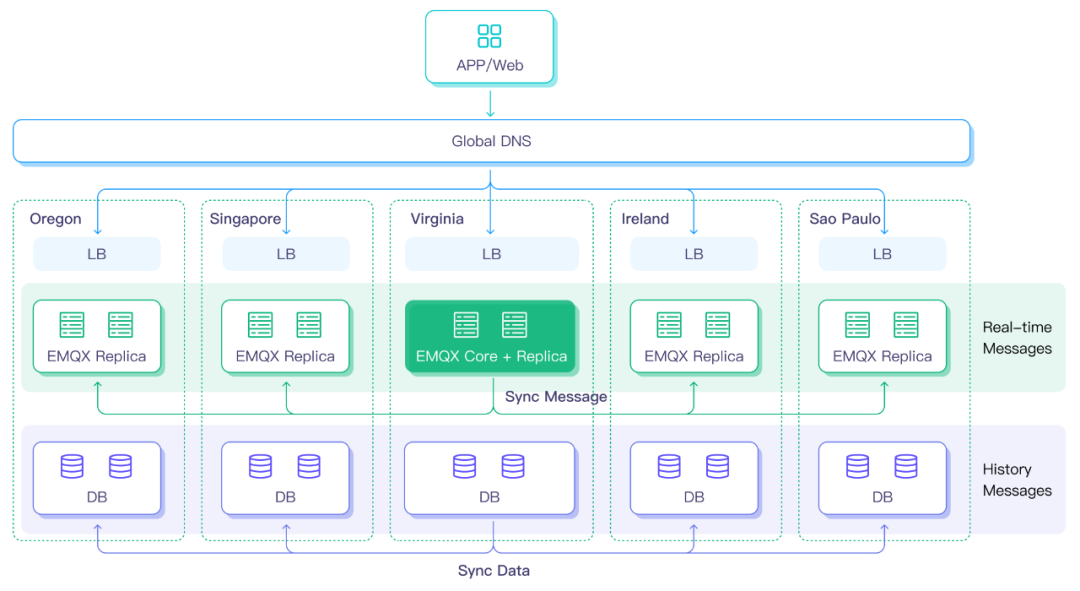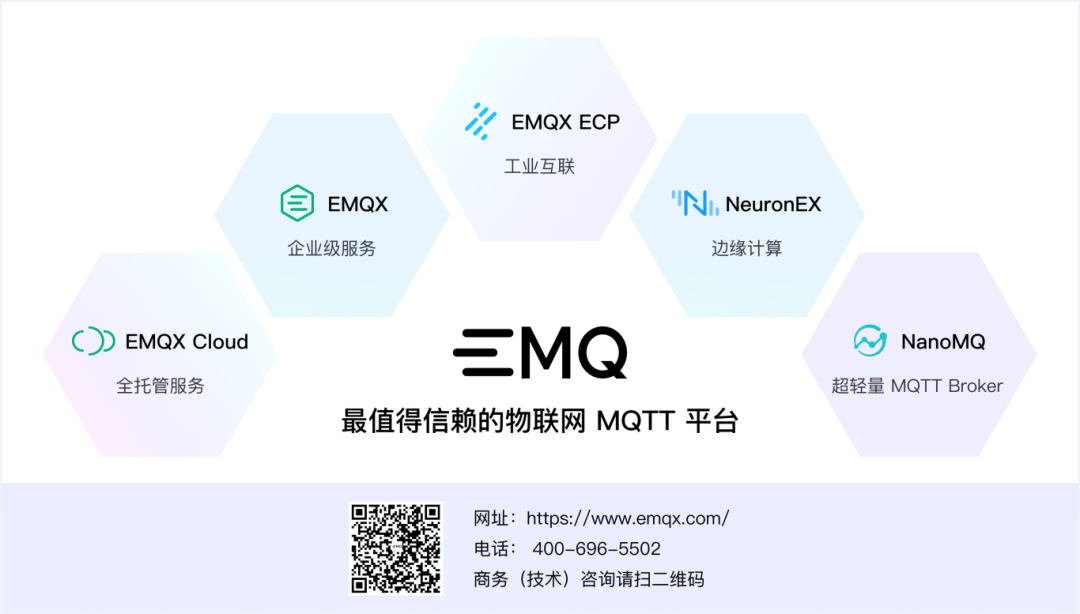
The gaming industry has undergone many technological transformations in recent years. The demand for interactive games, immersive experiences, and multiplayer online social games continues to grow, prompting the gaming industry to focus more on how to meet the higher requirements for seamless real-time communication and players’ social interactions, collaboration, and real-time message synchronization. However, traditional solutions struggle to meet the low latency, message and state synchronization, and high throughput communication required for such real-time gaming experiences, often leading to unstable connections, packet loss, and inconsistent player experiences.
To address various pain points in message transmission within the gaming industry, EMQ has launched an integrated solution. This solution utilizes globally distributed MQTT message servers to help gaming companies provide the instant response, smooth gaming experience, and uninterrupted connectivity that players expect. With the trend of games going global, this solution offers gaming companies more stable, cross-domain gaming services, gaining recognition from more global players.
Challenges Facing the Real-Time Gaming Industry
-
Cross-Regional Communication and Regulations: As more and more gaming companies expand into global markets, players may be distributed around the world. This leads to increased network latency between gaming servers and players, affecting the smoothness and responsiveness of real-time interactions. Additionally, different countries and regions may have varying network regulations and restrictions, including data transmission, privacy protection, and data sovereignty.
-
Privatization and Privacy Protection: Global gamers may face various cybersecurity threats and privacy leakage risks. Gaming companies need to implement various security measures in their message transmission systems, such as encryption and access control, to prevent data leakage and unauthorized access.
-
Low Latency and High Concurrency: The gaming industry often requires extremely high real-time performance, with quick responses needed between players and gaming servers. As the number of players increases, gaming servers also need to handle a large number of concurrent message requests. Gaming companies must possess the real-time, reliability, and high concurrency capabilities of message transmission to meet the demands for quick response and smoothness in games.
-
Flexibility and Scalability: As the number of gamers increases, gaming companies may need to horizontally scale their distributed deployments. The company’s message transmission system needs to support this scaling, ensuring a smooth transition when adding nodes.
-
Integration and Usability: Gaming systems often need to interact with multiple external systems (such as databases, payment platforms, etc.). The company’s messaging system needs to have rich API interaction interfaces to conveniently connect message queues with external systems, enabling quick data transmission and synchronization while reducing development difficulty and integration costs.
EMQ Real-Time Messaging Solution for the Gaming and Entertainment Industry
The enterprise-grade MQTT IoT access platform EMQX can help address the challenges of message transmission in real-time gaming, allowing gaming companies to gain a competitive edge in their global expansion. MQTT (Message Queuing Telemetry Transport) is a lightweight messaging protocol that is well-suited for gaming applications requiring efficient, low-latency communication. EMQX provides gaming companies with massive concurrency, low latency, message delivery confirmation, privatization deployment, secure encryption, and flexible scalability capabilities.

-
Real-Time Massive Concurrency Communication: EMQX can handle massive data, achieving low-latency real-time communication between gaming servers, devices, and players, ensuring real-time synchronization of on-screen messages and game actions, making the multiplayer gaming experience smoother and enhancing immersion. At the same time, gaming companies can easily and accurately send game broadcasts to massive players using EMQX.
-
Efficient Data Transmission: The lightweight nature of the MQTT protocol reduces network bandwidth consumption, making it suitable for various mobile gaming applications. By minimizing packet sizes and reducing network overhead, data transmission is optimized, speeding up game performance and reducing battery consumption.
-
Real-Time Game Data Analysis: EMQX can process large amounts of data in real-time, allowing gaming companies to collect and analyze player behavior and game performance metrics in real-time. This data provides valuable insights for game developers to improve game mechanics and provide personalized experiences for players.
-
Scalability and Flexibility: EMQX’s cluster architecture features flexible horizontal scalability, allowing for flexible expansion as player loads continue to grow. Game developers can utilize EMQX’s hot upgrade and hot configuration features to ensure smooth game operation during scaling without affecting performance.
-
Privatization Deployment: EMQX supports privatization deployment, allowing gaming companies to deploy message servers within their internal networks according to their needs. This deployment method helps protect the security and privacy of game data while allowing gaming companies to customize and optimize based on business needs.
Value of the Solution
-
Low Latency and Reliable Multiplayer Collaboration Synchronization: In real-time games, players need to collaborate and synchronize commands, actions, and scores. EMQX supports shortest path routing based on message topics, ensuring that messages can be quickly and accurately routed to target servers or clients. This mechanism helps reduce network transmission delays and improve message transmission efficiency. The QoS mechanism of MQTT also ensures that collaborative messages are reliably delivered.
-
Interactive Game Chat Push: Whether teaming up for adventures in large-scale multiplayer online role-playing games (MMORPGs) or discussing tactics in strategy games, players can easily communicate in real-time through the embedded chat functionality supported by EMQX’s underlying data transmission, sharing information and discussing strategies. At the same time, EMQX can also facilitate precise push notifications to ensure players do not miss any important updates, thereby enhancing game engagement.
-
VR Game Device Interaction: EMQX can seamlessly integrate with other IoT devices, extending the gaming experience beyond traditional platforms. By integrating wearable devices, motion sensors, virtual reality (VR), and augmented reality (AR), the immersion and interactivity of games can be further enhanced.
-
Channel Security Encryption: EMQX provides robust security encryption features, ensuring the security of game messages during transmission. By using MQTT keys to authenticate clients, secure connections can be established between game servers and clients, preventing malicious attacks and behaviors.
Related Products
EMQX Enterprise
EMQX Enterprise (hereinafter referred to as EMQX) is a powerful enterprise-grade IoT messaging platform designed for high reliability in large-scale deployments and IoT applications. In the gaming industry, EMQX brings benefits to users through the following capabilities:
-
High Reliability and Scalability: EMQX adopts a distributed architecture with high availability and scalability, capable of handling large-scale concurrent message transmission. It supports horizontal scaling to accommodate the growing number of IoT devices and data traffic, ensuring system stability.
-
Rich Protocol Support: In addition to the MQTT protocol, EMQX also supports various messaging protocols. It allows developers to extend support for various private protocols to meet their application needs.
-
Data Integration: EMQX seamlessly integrates with various data storage services, message queues, cloud platforms, and applications. It can connect to cloud services for remote data transmission and cloud-based analytics.
-
Security and Authentication: EMQX provides strong security features, including TLS/SSL encrypted transmission, client authentication, and access control. It supports multiple authentication methods, such as username/password, X.509 certificates, and OAuth, ensuring the security of IoT communications.
-
Rules Engine and Data Processing: EMQX features a flexible rules engine that enables real-time data processing and forwarding based on device data. It supports operations such as data filtering, transformation, aggregation, and persistence, helping users analyze and make decisions based on business needs.
-
Visual Monitoring and Management: EMQX provides an intuitive visual monitoring and management interface, allowing users to monitor IoT devices and message transmission in real-time. Users can view connection status, message traffic, and other metrics, as well as perform device management, troubleshooting, and system configuration operations.


